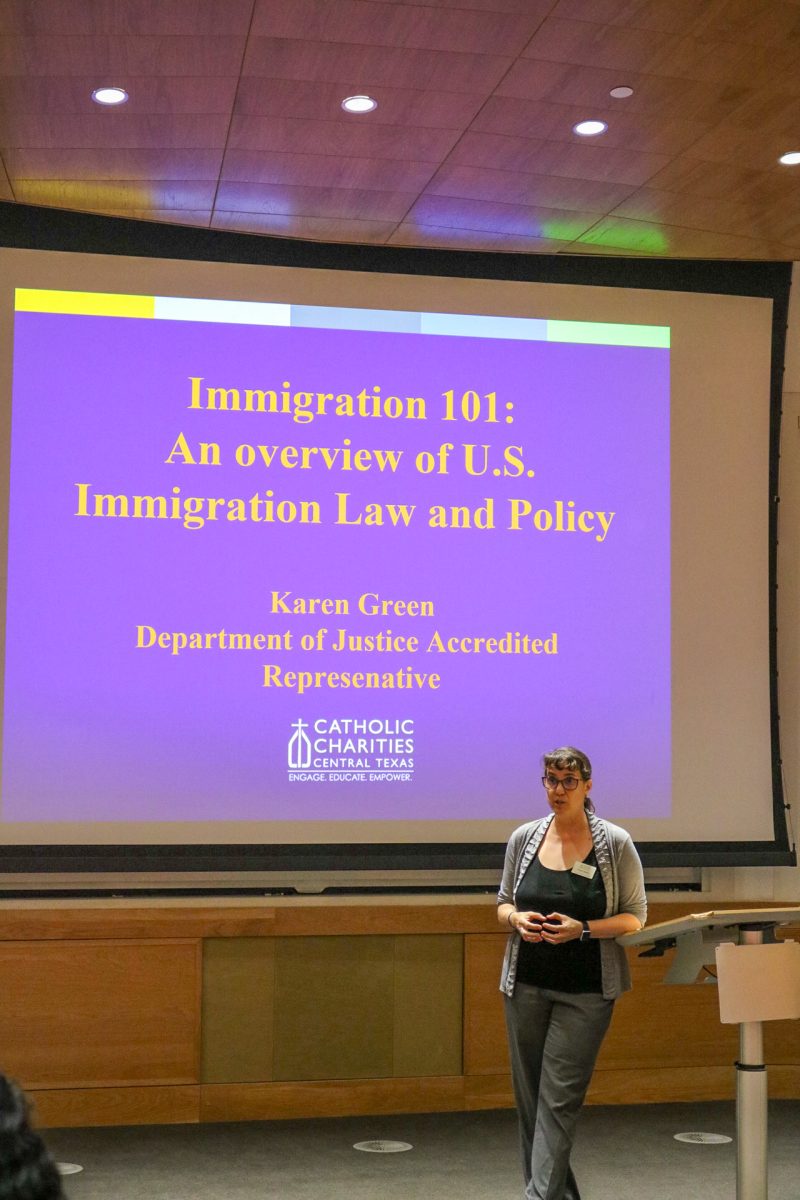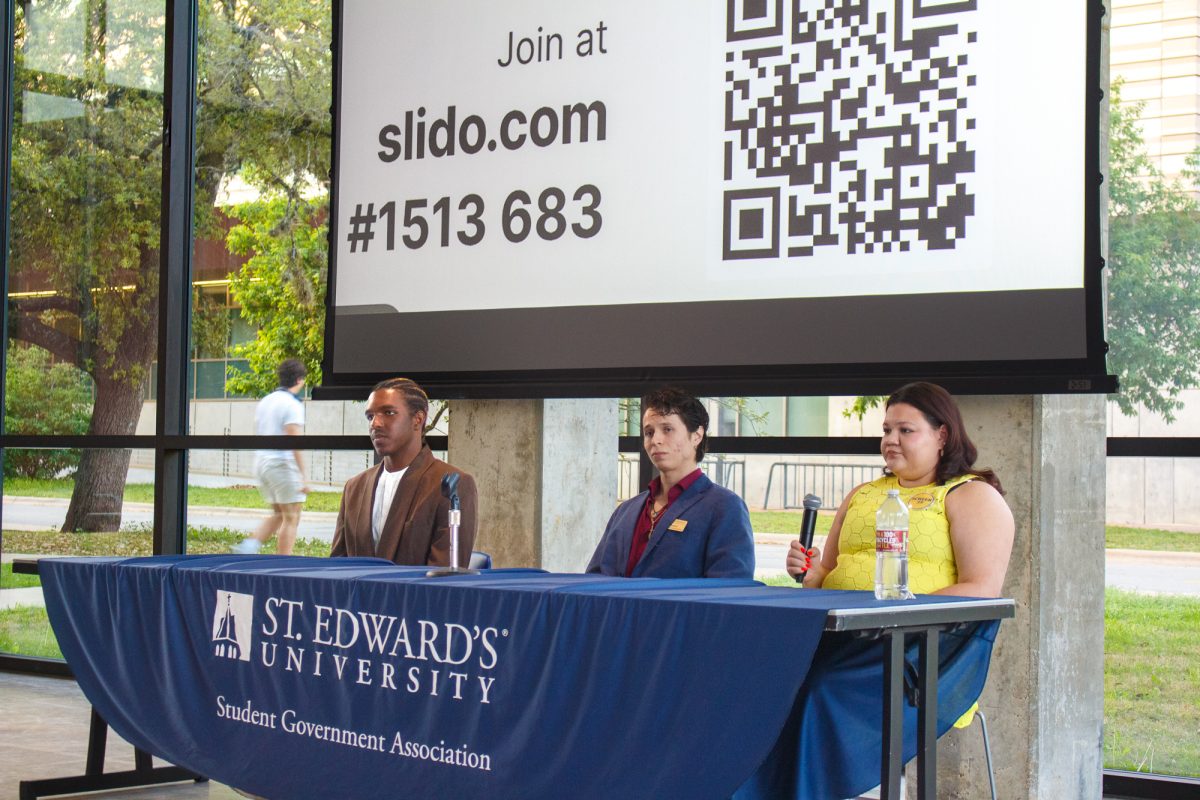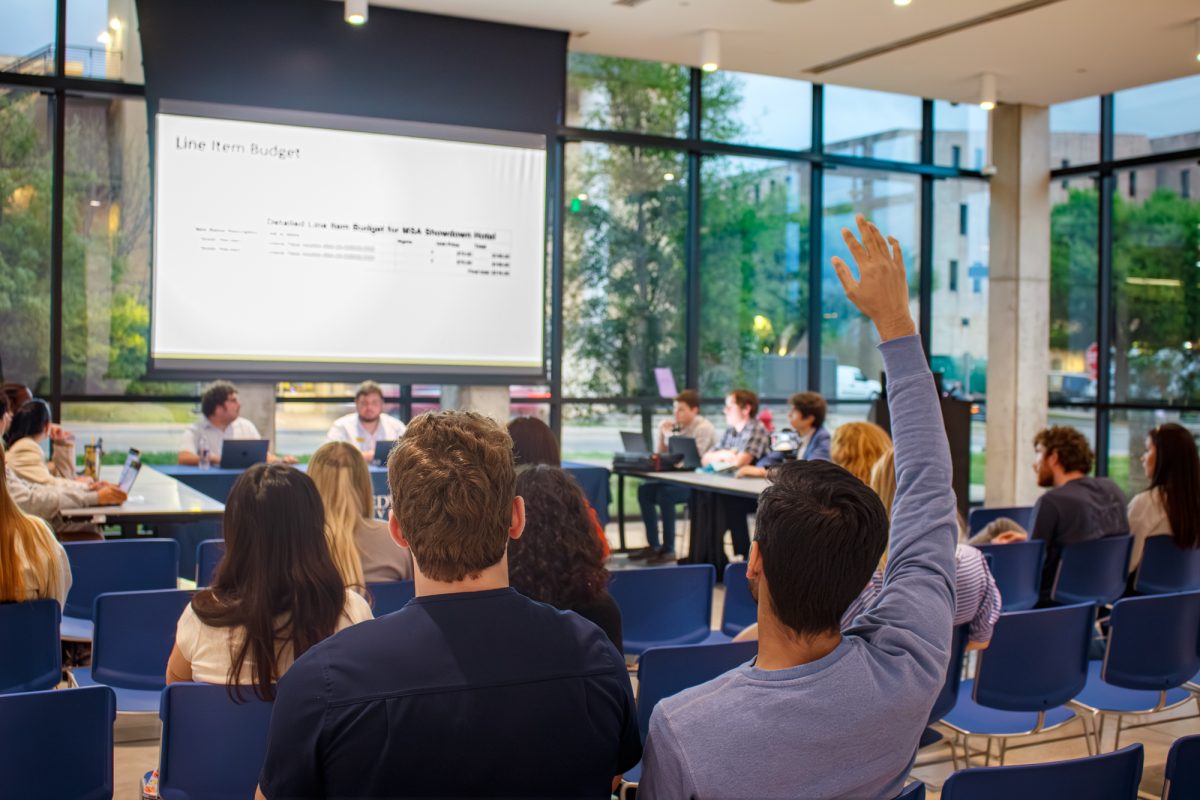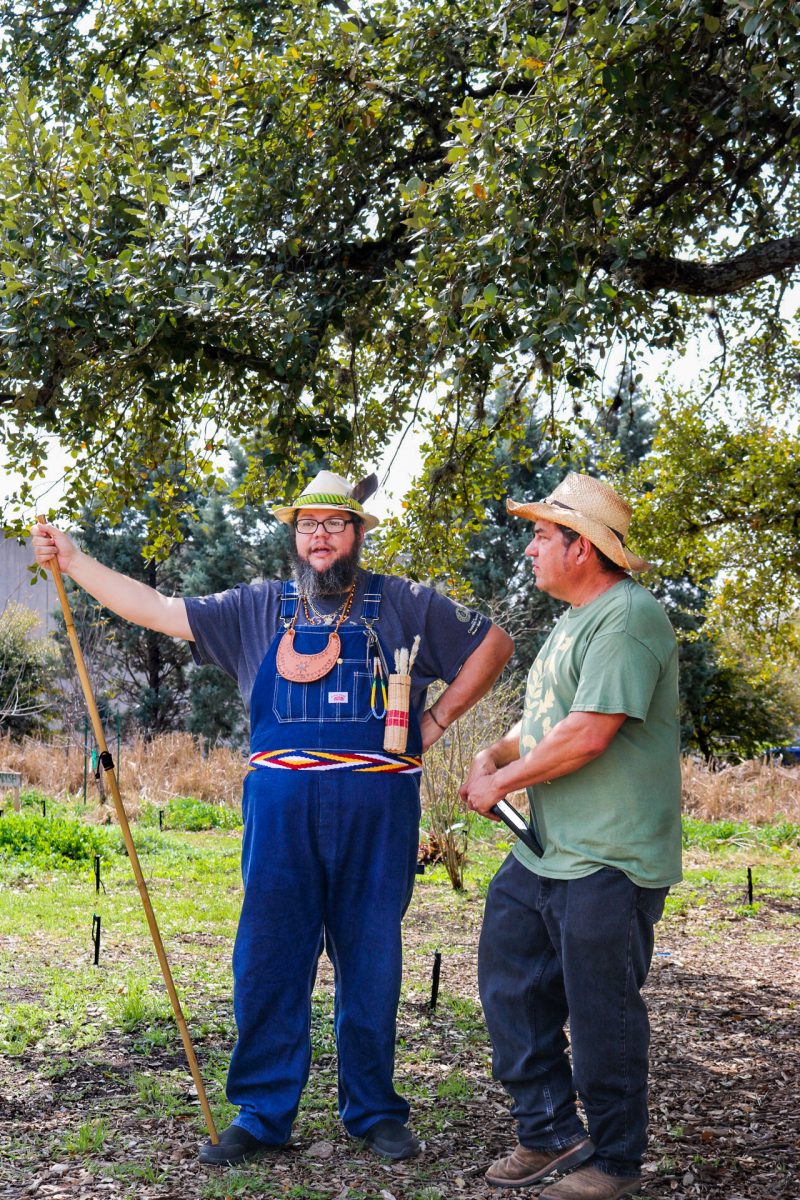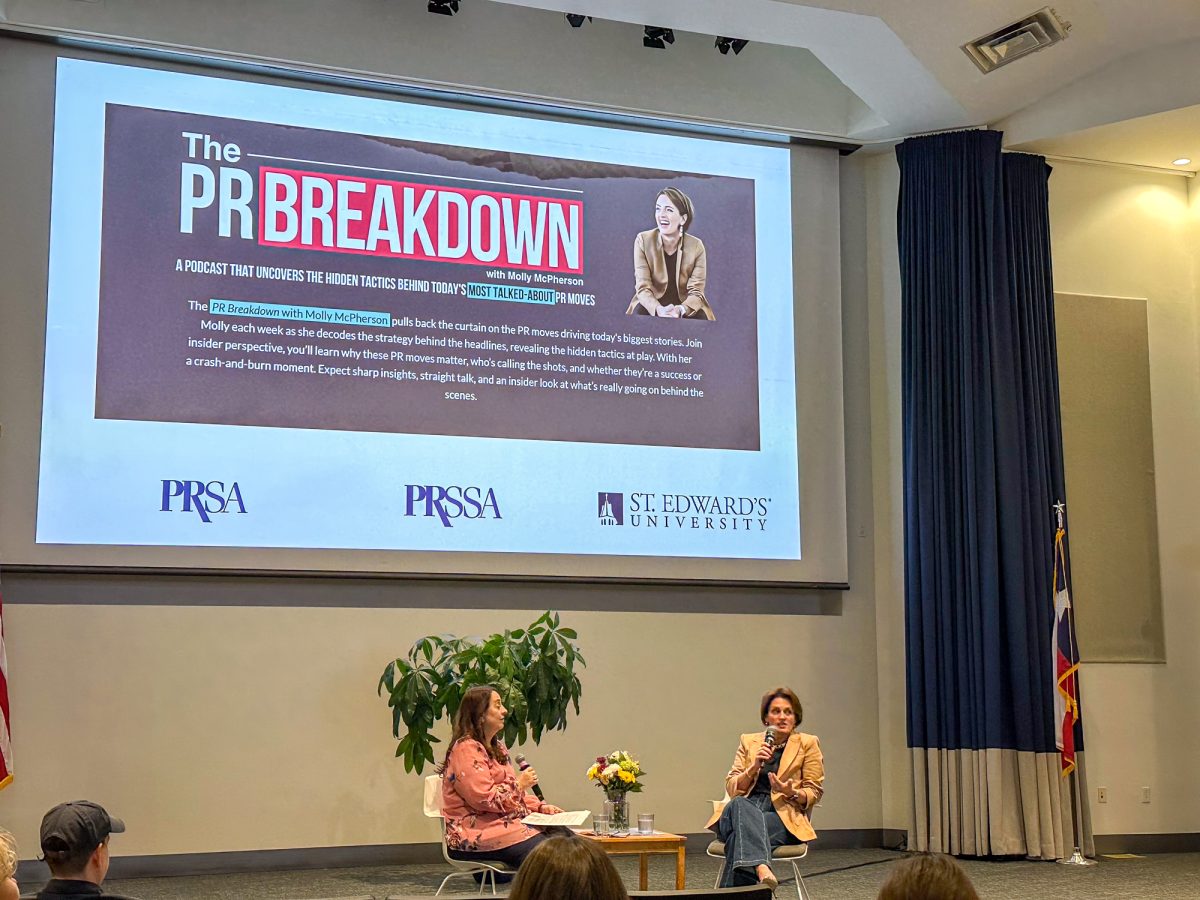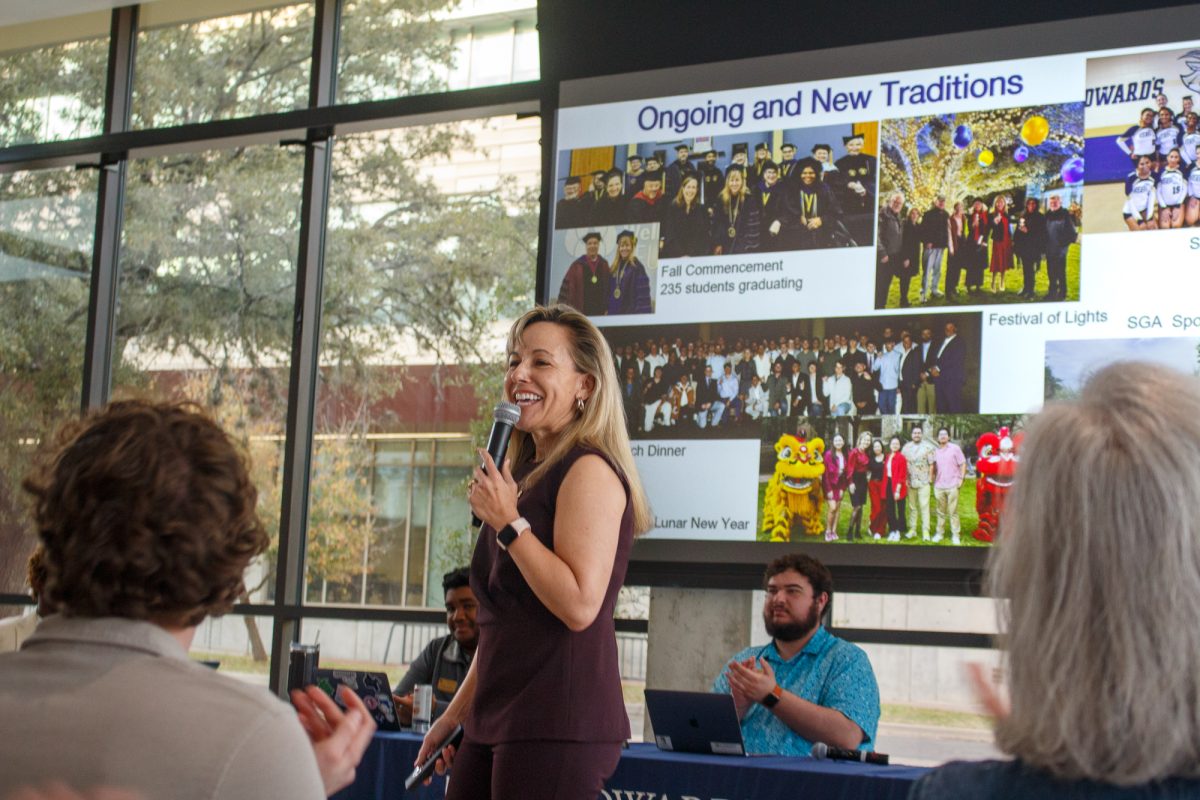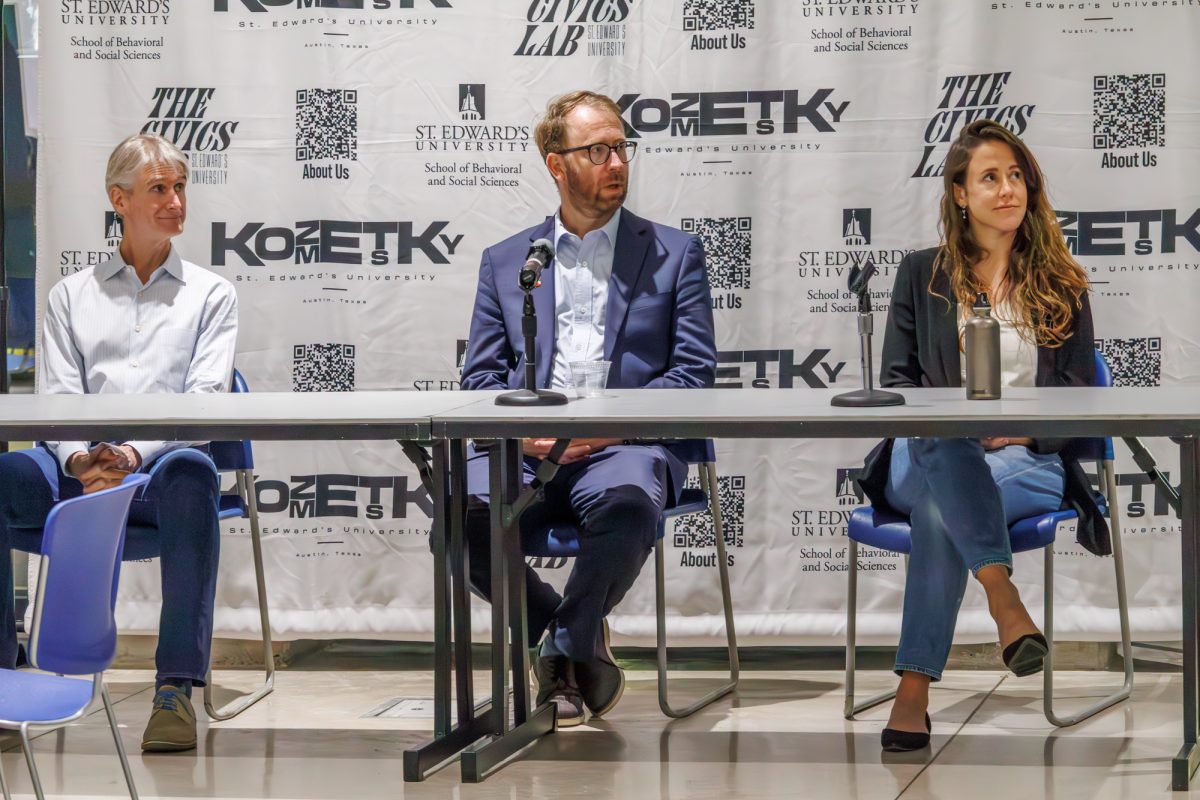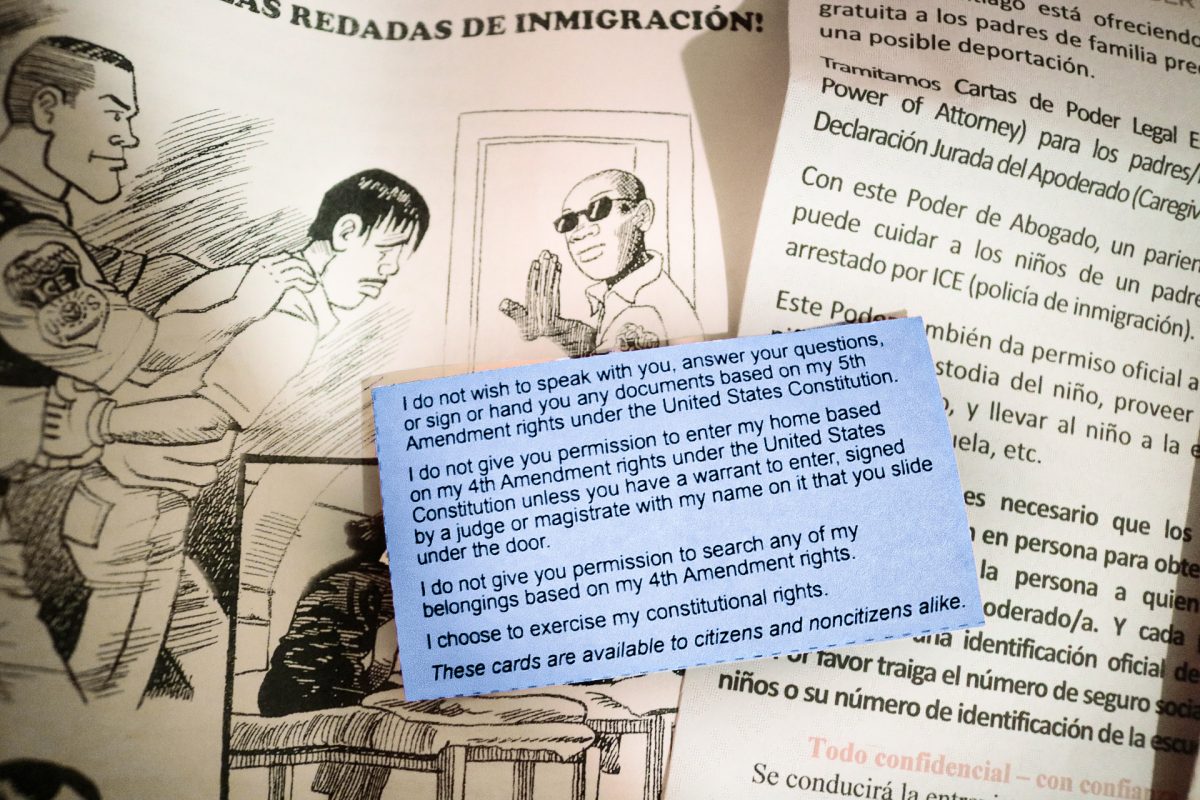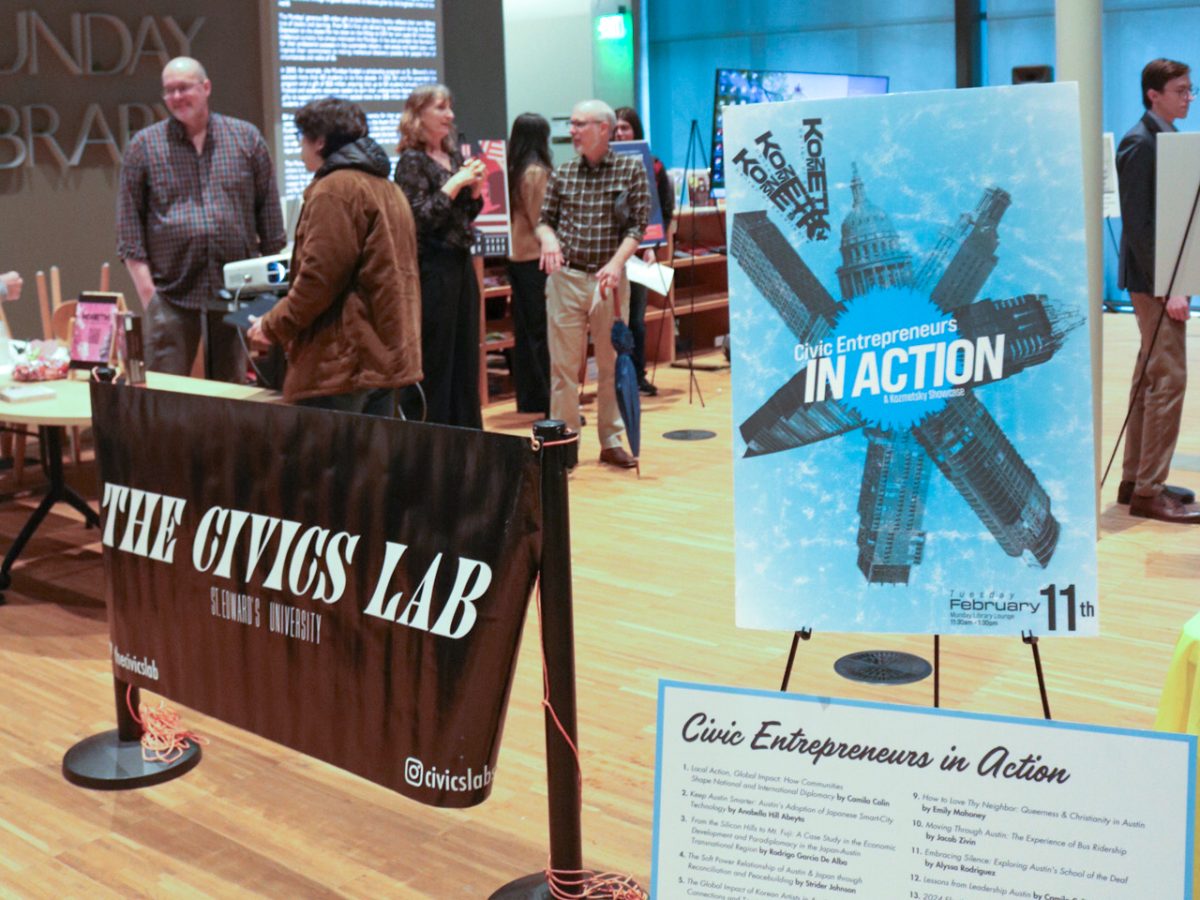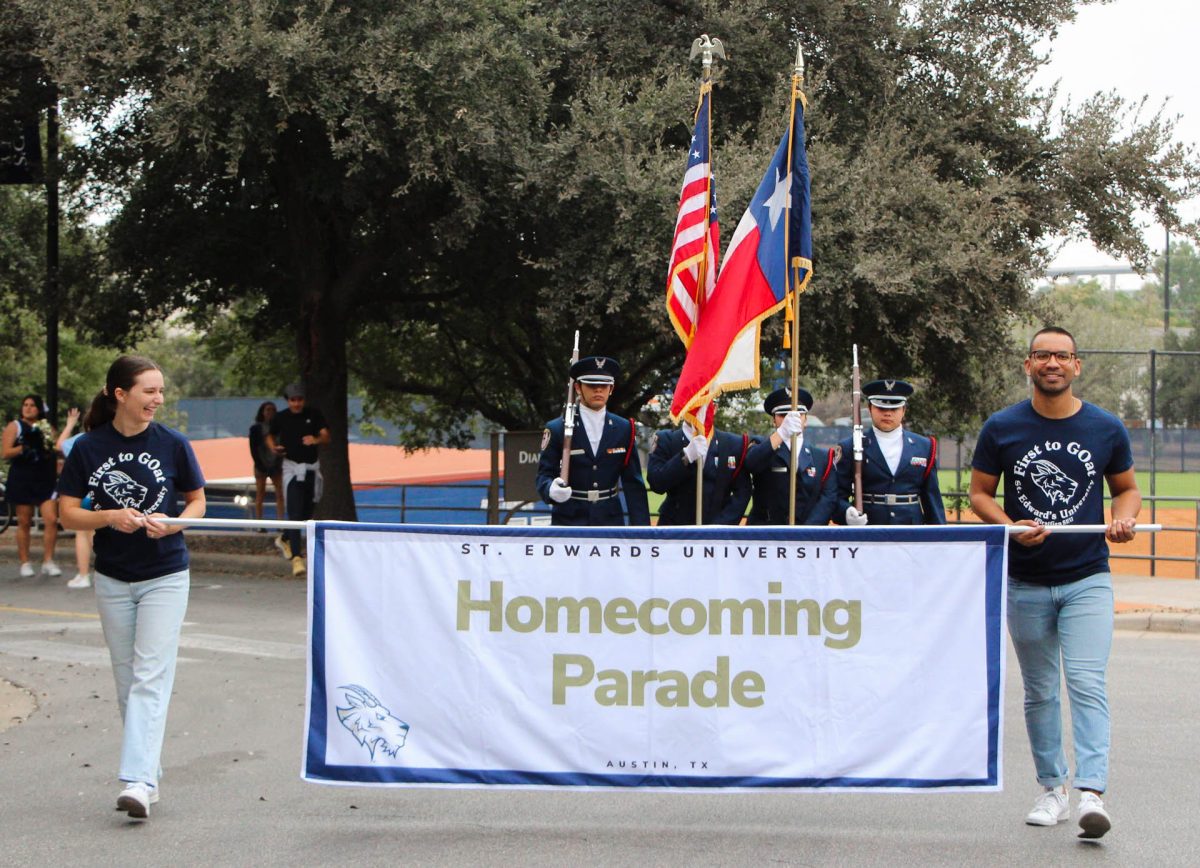In an intimate setting at St. Edward’s University’s Carter Auditorium, Catholic Charities of Central Texas’s Department of Justice accredited representative Karen Green provided critical immigration information to a small group of attendees.
The workshop, organized through the university’s Office of Student Belonging and Inclusive Excellence, created a conversational atmosphere where students could ask questions and receive practical guidance about current immigration policies and rights.
Green detailed several significant developments in immigration policy. She explained that changes to expedited removal now primarily target individuals who have been in the United States for less than two years, emphasizing the importance of maintaining documentation that proves residence duration.
“Proving you’ve been here for two years requires creative documentation from doctors, schools, bills — anything that creates a packet showing your presence,” Green said, noting this documentation serves as an essential defense against expedited removal.
Green also addressed the controversial Alien Registration requirement scheduled to take effect April 11. Based on the Alien Registration Act of 1940, this rule would require non-citizens present in the United States longer than 30 days to register with the government. However, Green noted there is already litigation against this act underway.
“There’s already litigation and lawsuits being filed about this,” Green said, suggesting that while the registration system appears on the United States Citizenship and Immigration Services website, no one is required to register until the effective date — if the requirement survives legal challenges.
During the workshop, Green offered practical guidance on interacting with immigration officials. She explained that individuals are only obligated to provide their name and date of birth when questioned, and emphasized that immigration officials need a judicial warrant signed by a judge — not merely an administrative “warrant for arrest of an alien” — to legally enter someone’s home.
“ICE officials may say random things to trick people into complying,” Green said, advising attendees to request officials slide warrants under the door for verification before opening it.
For those concerned about detention, Green offered advice for what to do if detained: “If arrested, don’t pay the bond.” She explained that paying criminal bonds often leads to immediate transfer to immigration detention centers, whereas remaining in local custody allows time for a public defender to be assigned and potentially have charges dropped.
Toward the end of the session, Erica Zamora, the university’s Director of the Office of Student Belonging and Inclusive Excellence, reiterated St. Edward’s resources for students needing immigration legal assistance.
“If you say you’re from St. Edward’s and you’re wanting to access the fund through Catholic Charities for legal aid fees, you’ll receive priority,” Zamora said, while emphasizing that students must answer callback phone calls from Catholic Charities representatives.
“We can see that the toolkit has been accessed over 500 times,” she said, indicating strong student interest in these resources.
Green recommended several advocacy organizations including the American Civil Liberties Union of Texas: ACLU Texas, Texas Civil Rights Project and the Texas Immigration Law Council for additional support. She also mentioned the Austin Sanctuary Network’s accompaniment program, which pairs volunteers with individuals attending immigration check-ins or court dates.
“Nationwide, people know their rights,” Green said. “Silence works — that is working.” This simple observation emphasized how basic knowledge of constitutional rights has helped many navigate difficult encounters with immigration officials.
The workshop concluded with personalized guidance, including referring a student seeking guardianship over younger siblings to appropriate legal resources, highlighting the responsive nature of the session to participants’ specific needs.
Catholic Charities of Central Texas continues to offer immigration legal services at significantly lower costs than private attorneys, with consultations available to St. Edward’s students through a special arrangement with the university.


